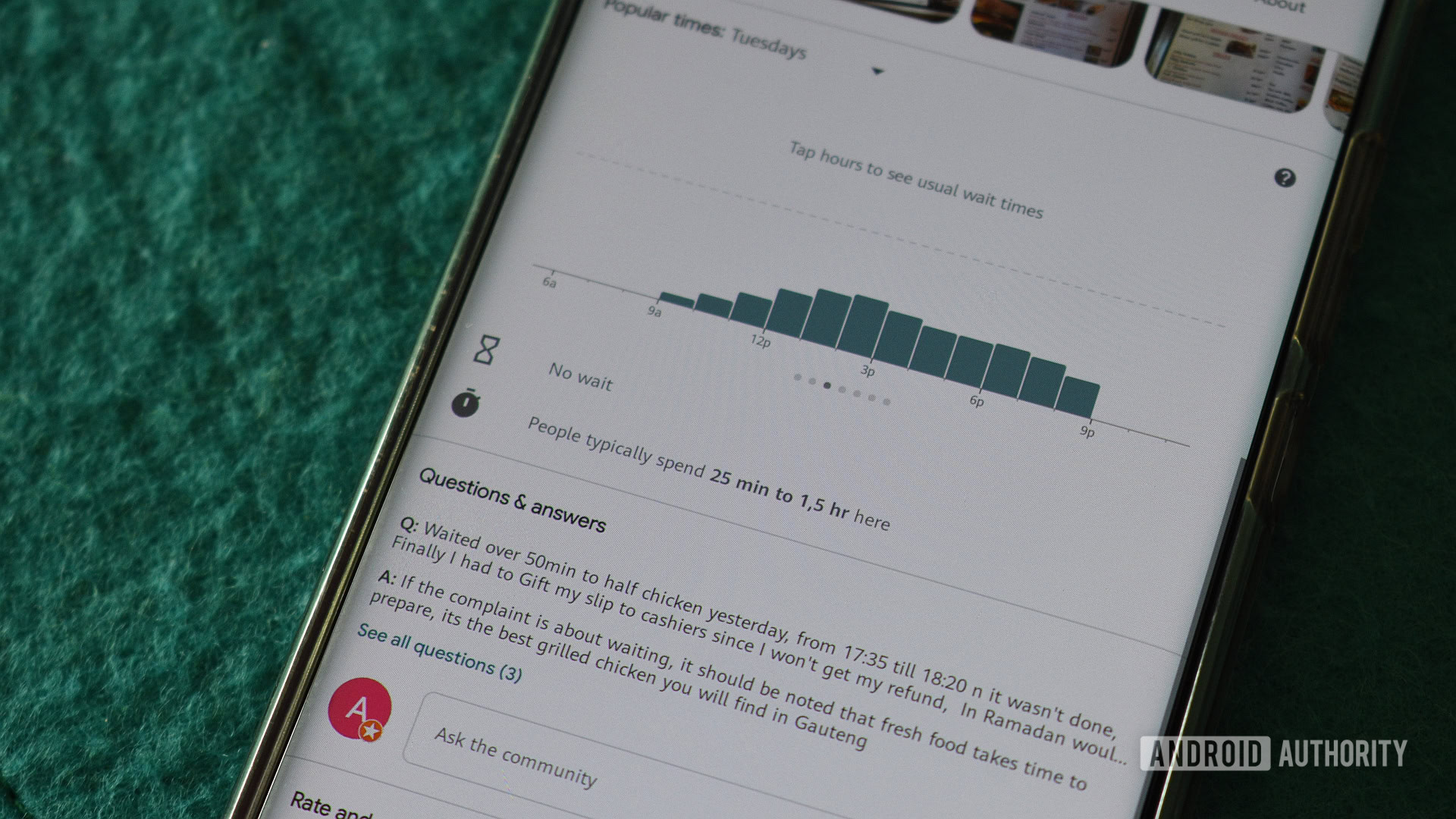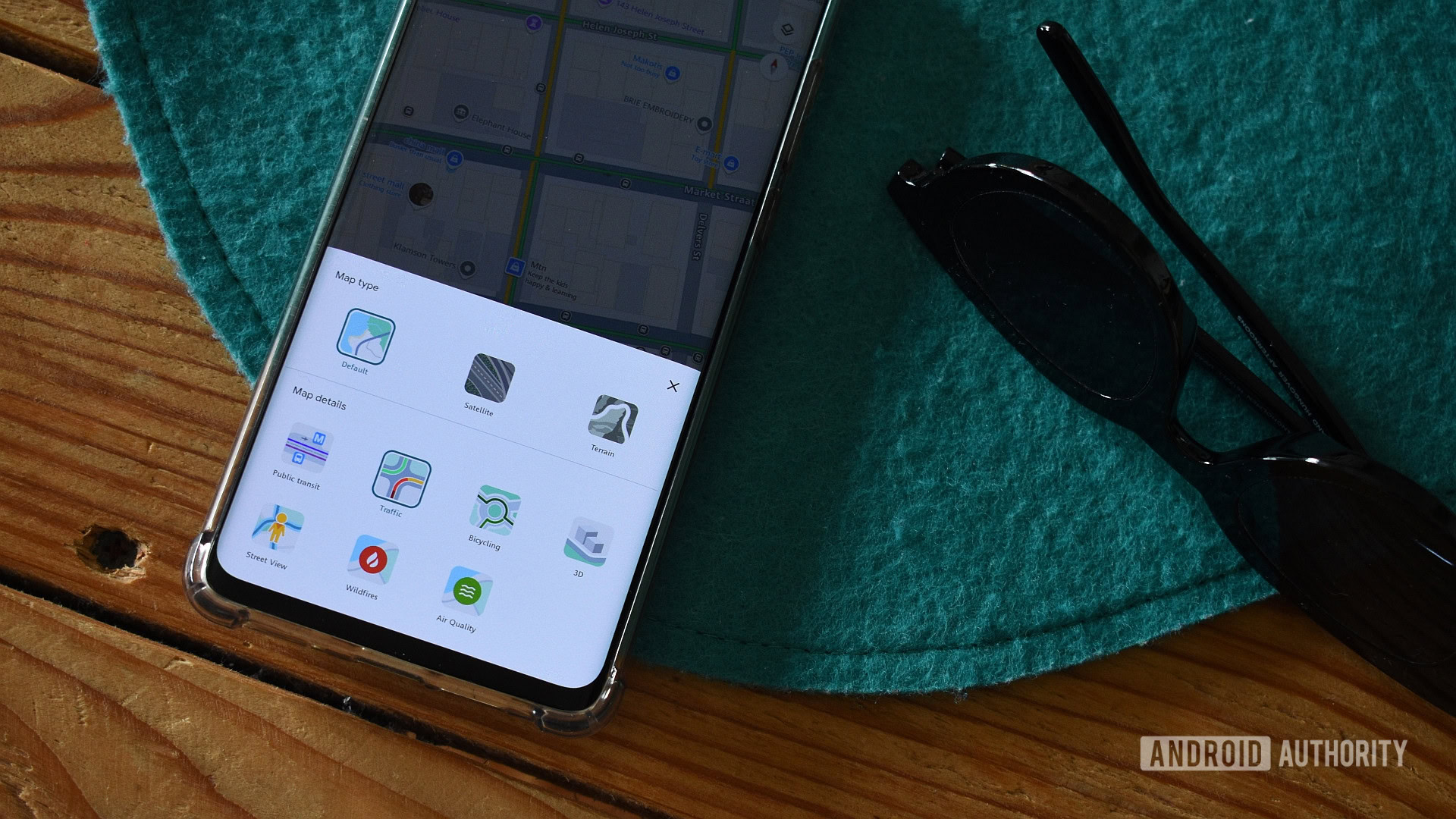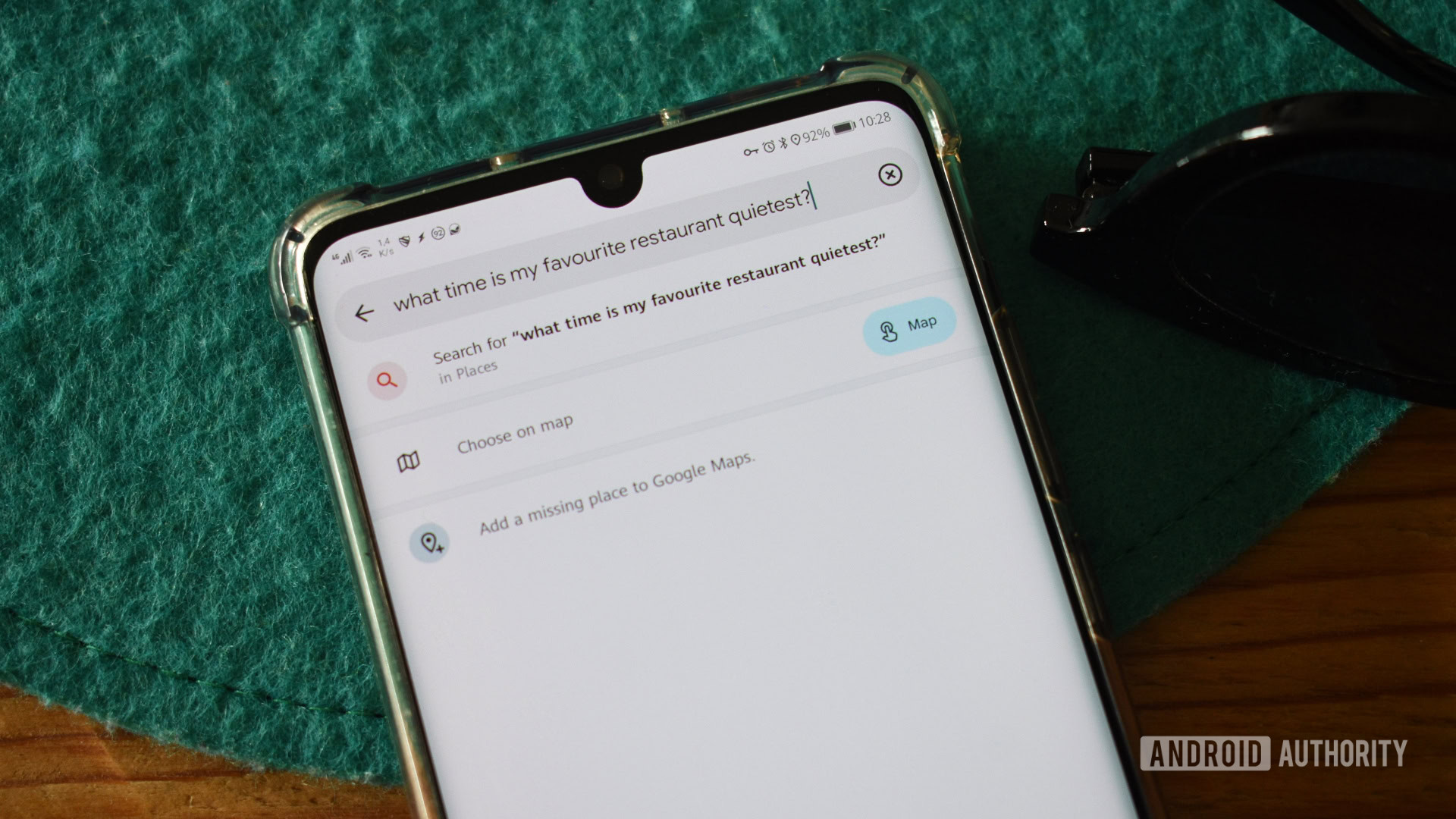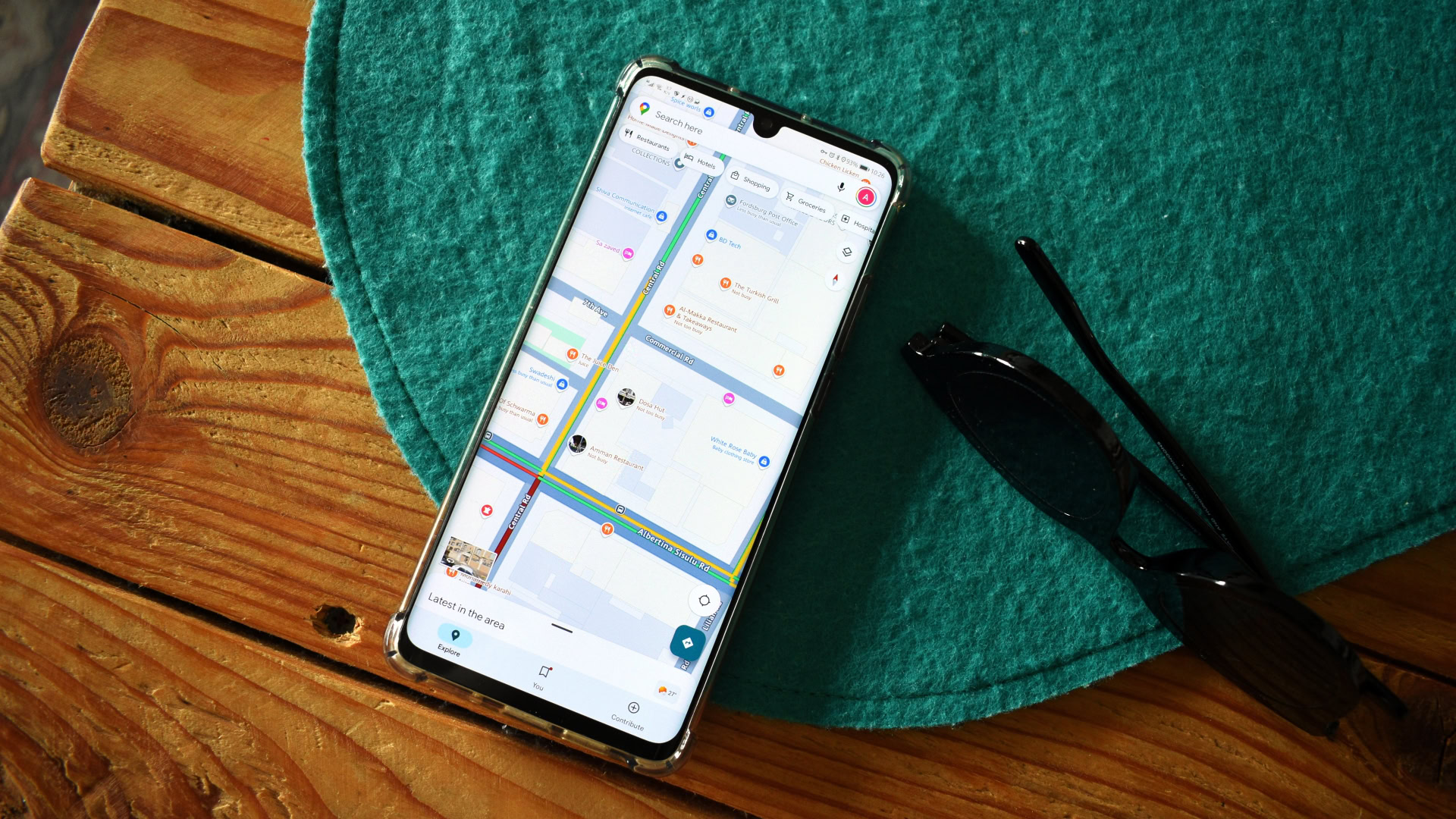Andy Walker / Android Authority
I dread crowded places, and it’s one of the reasons I’m not too fond of the holiday season. This is especially true when finding a peaceful place to enjoy coffee or do some work. I can’t count the times I expected to arrive at a cozy, quiet cafe only to be met by everyone in the city.
For this reason, I like having options, so I rely heavily on Google Maps for insights. The service is also happy to assist by providing insights into businesses’ Popular Times and highlighting “busy areas” on the map when it deems fit. However, Google could vastly improve how it uses and presents this information, especially for those seeking a placid spot.
Do you think Google Maps’ Popular Times feature needs an overhaul?
69 votes
Google details quiet spots already, doesn’t it?
Although Popular Times is one of the Google Maps features I’d be lost without, it’s also one Google has seemingly forgotten. It hasn’t received a significant update since it launched nearly a decade ago. Using data from this feature, Maps occasionally indicates how busy an eatery or grocery shop is. This could include a “busier than usual” note below the name on the map, but I’ve rarely seen it highlight places that are “less busy than usual” or “not busy.”
Although Popular Times is one of the Google Maps features I’d be lost without, it’s also one Google has seemingly forgotten.
Yes, it does happen, but it’s inconsistent. As you can see in the screenshots above, both areas of Johannesburg I snapped above are within feet of one another, but only one portion of the map showcases busyness info. I’ve pored over Cape Town data, as well as London and New York, and it’s a similar story. Regardless of your location, it’s a lottery for when this data will appear. This unreliable presentation of crucial information makes it far more challenging to determine if an eatery is quiet without digging deeper into individual listings.
When faced with such a problem, I manually comb through the Popular Times graph data for multiple places I may visit, traveling across the map with my eyes and finally comparing all this data. This process is far more time-consuming than it really needs to be.
Popular Times needs an overhaul

Andy Walker / Android Authority
Considering all these issues it’s time that Google updates the presentation of all this data.
As an off-the-cuff example, Popular Times data could benefit from a dedicated Map detail layer that displays the foot traffic of a specific place. Those who need this data can activate it, and those who don’t can simply toggle it off and enjoy a clutter-free experience.
A filter for various activity levels would make this information even more helpful, allowing users to zero in on busy or empty establishments quickly. A color indicator alongside each cafe displaying its status would also be useful. Red could indicate near capacity, and green could suggest that it’s virtually empty.
Google could do so much with its Popular Times data, from adding a filter overlay to updating indicators and enriching search results.
Beyond the map visualization improvements, the Popular Times graph on each listing’s page could do with a makeover. A brief line stating when a place is at its most serene (e.g., “Usually quietest on Tuesdays at 9 AM”) would make it incredibly easy to plan remote work spots, business meetings, or quiet brunch dates.

Andy Walker / Android Authority
There’s potential to reinvent the “busy area” feature, too. A “quiet area” overlay on the map would be useful if a block is less trafficked than usual. Imagine the benefits of such a feature for a mall, business corridor, or public venue! It would allow people like me to determine if a broader area is worth visiting or traveling through on a particular day.
There’s room for AI’s help here, too. While Google Maps did receive an AI boost in February 2024, it rolled out to a very limited set of Local Guides in the US. Nevertheless, the ability of Gemini-powered search tools to crunch this specific Popular Times and real-time data and present it legibly is truly exciting for me. You wouldn’t need to view the map to find these places; you could ask Gemini to find a quiet cafe in the area. This would be incredible for hands-free navigation and use with Android Auto, too.
Benefits for introverts and beyond

Andy Walker / Android Authority
While these changes would undoubtedly serve my predilection for hushed cafes, this information would benefit others, too. Students, business professionals, and those more sensitive to noise and bustle will all find value in these changes. It could undoubtedly benefit establishments, too. Cafes usually have naturally calmer spells throughout the day, and highlighting this hushed period to potential customers could encourage visits and boost business.
These changes would definitely benefit me and other introverts, but a slew of other users, from students to business people.
Of course, we do need to touch on a few potential issues. There are perhaps security concerns about promoting businesses that are not “busy,” but I’d argue this information is already semi-present within Popular Times data. Additionally, this data is crowdsourced anonymously from users who have opted in to location history. As I’ve mentioned, Google also highlights this information, albeit unreliably. All of my suggestions merely demand subtle redesigns to existing features rather than more data harvesting. Google already has access to this data but needs to implement it better.
Google Maps is by no means perfect. It’s an essential app that guides me through my city, on road trips, and in foreign lands. Whether I’m researching a local eatery or checking out parking situations with satellite and street view, it’s there. However, it’s by no means the perfect tool for introverted travelers. With the addition of these small changes, it certainly would be moving in the right direction.

